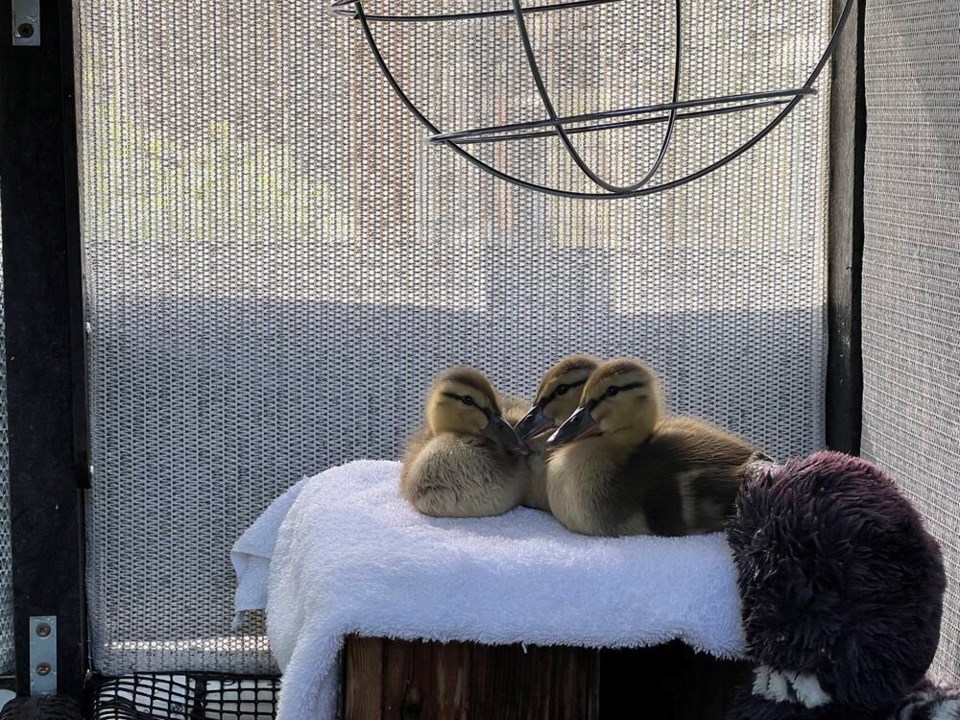The next time you’re out on a walk and spot a duckling or two wandering about, keep an eye for a while and safely bring them to the rescue, a British Columbia animal rescue group advises.
The Burnaby-based Wildlife Rescue Association of BC (WRA), which provides rehabilitation for injured and orphaned wildlife throughout Western Canada, has recently observed a large uptick of orphaned ducklings admissions.
Wildlife rescue hospital manager, Kimberly Stephens said the recent warm spell, sunshine and spring-like-weather have facilitated for the hatchlings to finally leave their nests looking for food and water resources — a little later than usual, she added.
Some ducklings get left behind, she observed, leaving them orphaned and in need of immediate care.
“Usually, we’d have had thirty or forty ducklings in care by this time of the year. At the start of last week we only had four,” said Stephens.
Each duckling needs about six to eight weeks of care in the facility to be able to get back into the wild and immediate care is crucial, she notes.
If a person finds a duckling (or two) alone, Stephens advises keeping a vigilant eye and protecting the duckling for about an hour to determine if the duckling is orphaned, and safely transport them to the care of the volunteers at WRA (on 5216 Glencarin Dr. in Burnaby) for adequate care.
Alternatively, the public can call WRA helpline at 604-526-7275 for care assistance and they will be able to send out one of their trained rescue volunteers to the site to help, she said.
She added, owing to the rescue relying on donations, in the month of May, the non-profit is holding a matching campaign. For every donation, WRA will match up to $300 for a single wildlife, which goes a long way for the care for these animals and birds, she said.



